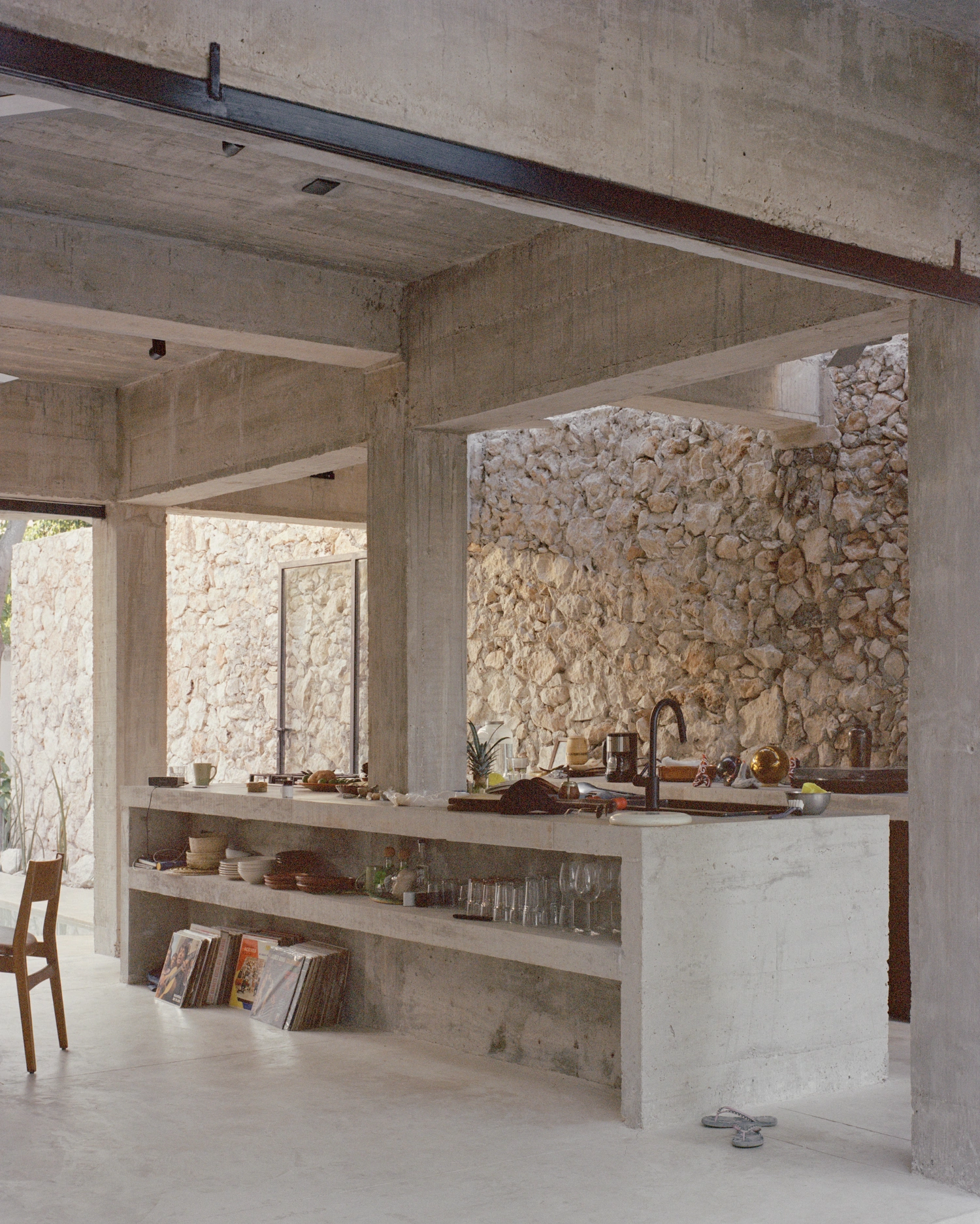In the outskirts of Mérida, Mexico—a city where colonial facades often conceal lush courtyards and layered histories—architect Ludwig Godefroy has drawn from both land and legacy to conjure the House in Los Cocos, a residential project that speaks in tones of minimalism and myth.
Set on a narrow 70-by-8-meter plot south of the city’s historic core, the house doesn’t fight against the challenging dimensions but channels them, both literally and figuratively, through a choreography of spatial rhythm and aqueous flow.
Godefroy’s architectural grammar is one of fragments and voids: pre-Hispanic-inspired pavilions are arranged in a staggered sequence, bisected by a continuous waterway that doubles as axis and atmosphere. The built forms—solid, monolithic, yet never overbearing—are deliberately porous, framing instead of enclosing space. Two private bedroom pavilions flank the axis, each wrapped in its own garden, creating moments of seclusion that contrast with the project’s collective heart: a floating central living pavilion that hovers above a lush, breathing void. It is not a house in a garden; it is a house as garden.
What emerges is an inversion of typical domestic architecture: the garden becomes the living room, the open air becomes the threshold. This deliberate collapse of interior and exterior, public and private, is not mere aesthetic conceit—it is a climatic and cultural response, rooted in the architectural DNA of Yucatán yet entirely contemporary in execution. The house embraces a lived informality, a kind of quiet radicalism that replaces the façade with foliage, the corridor with contemplative path.
The material palette furthers this ethos of elemental clarity. Concrete, wood, and stone are not treated as inert finishes but as aging actors in a temporal play. Godefroy’s design invites time in as a collaborator; the house is meant to weather, to gather a patina, to absorb the light and dust of the Yucatán. In this way, the House in Los Cocos is less a monument to modernism than a meditation on impermanence—luxuriously spare, but rich with meaning.























